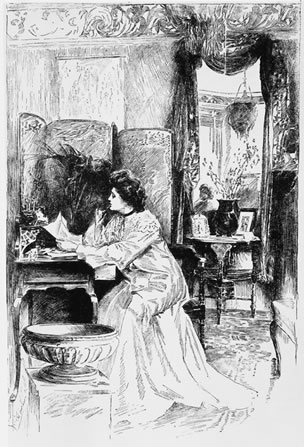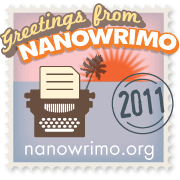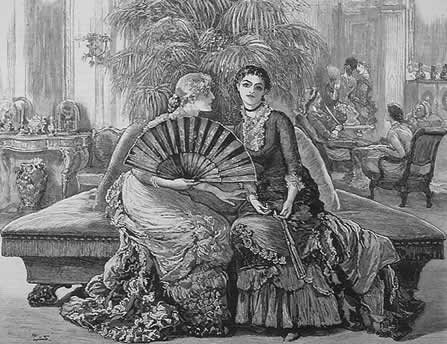
Much of the critical reaction to Hilary Mantel’s new release, Bring Up the Bodies, has focused on how her books elevate the genre of historical fiction, how her elegant and literary prose is heads and tails above the middling writing of most HF novelists, how she focuses on real subjects (aka men) as opposed to lustiness, court politics, and relationships, and on the detailed history in Wolf Hall and Bring Up the Bodies. Since I come from a background in historical romance, where the accuracy debate is a thorny issue, it was a surprise that it existed–and in much snobbier tones than amongst romance readers and writers–in historical fiction. You would think that a bunch of writers absolutely gung-ho about their particular time periods would have a common ground and camaraderie, but it seems the debate over accuracy, as well as the very existence of historical fiction, rages a tad more bitterly.
Before I discovered historical romance, I fell in love with the YA and MG historical novels published during my formative years. Authors like Ann Rinaldi opened my eyes to the wonders of American history, Scott O’Dell’s Island of the Blue Dolphins brought an obscure person in history to life, the American Girl companion books made young girls in 1774 or 1854 or 1904 seem just like me, and Karen Cushman introduced me to British history. It never once occurred to me that historical fiction was “bad” and that I should only seek non-fiction that would be full of concrete facts, no fantastical elements, or worse yet, imagination. Granted, I do read non-fiction for pleasure–always have, even at age 11, when I was so obsessed with Marilyn Monroe, I read the 700+ page biography written by Donald Spoto five times!!
But the reason why I love historical fiction of all stripes is that it stokes my imagination, and it enables me to associate, if just in my mind, with historical personages great and small. So the fact that the genre–which is very similar to SFF in how extraordinary it can be–is mired in grandstanding, posturing, and pissing over who has the most substantial degree, who does the most research, who spent X amount of years writing one book, etc etc, is really sad and really selfish. The most important thing is entertaining the reader, and hopefully helping them see that those boring history classes you’re forced to take in school and college are not The End of history. But what say you? Is the role of historical fiction to entertain, or is it a serious, doughty genre whose purpose is to educate and edify the minds of readers? Do you feel historical fiction and entertainment cannot peacefully coexist? And for that matter, do you think sex and romantic relationships distract from the plot?
Some Other Opinions:
Most historical novels are terrible. So thank God for Hilary Mantel
Historical Fiction: No Substitute for the Real Thing
5 Reasons We Read Historical Fiction
Unpicking the past masters: what makes a ‘historical novel’?
Historical Fiction vs History



Great questions. As a historical fiction writer AND a person who holds a BA and MA in history, I firmly believe you can educate AND entertain through historical fiction. I got my love of history through historical fiction, too, when I was very young. It WASN’T through reading history books, but through fiction. The fiction sparked my desire to learn more and to dig deeper into the historical record. We already have enough academic history that bores us all to tears (as a former academic, I can say this with absolute truth) but what we need is well-written, entertaining history. Just because it’s educational doesn’t mean it can’t be entertaining. That is precisely what is wrong with teaching history and why so many people are bored stiff. It’s not taught in an entertaining yet educational manner.
Ok. Stepping off my soapbox now. 😉
I’m a card carrying historian working in both fields. The juxtaposition of history vs historical fiction seems odd to me. You can learn a lot from good historical fiction (and you can get inpsired to pick up a history book) and you can be horribly mislead by a badly written history book. It’s odd that the champions academic historical writing’s superiority never concede that fact. Yes, bad historical fiction does exist (its ratio compared to good historical fiction is another story), but bad history does exist also.
I love Historical Fiction, and want to write Historical fiction. I think if the writer does it right Historical fiction can both be serious and entertaining. As a history student I hate when people think history is boring because it’s not it is our stories it is just not taught right in school. So if historical fictions get people interested in history I am all for it.
I have to say I don’t read historical fiction ie fiction written today about events of 100 years ago, but I love ‘period’ fiction, such as The Thirty-Nine Steps – written in 1915 about events of 1914, and similar, because as the writer was there and is writing about a time period either occuring at the time or just occured then it is extremely believable.
I’ve also got a guilty pleasure for ‘invasion fiction’, written in the 19th and 20th Centuries about the invasion of Britain by a foreign power, usually Germany! Just finished reading the 1913 book ‘When William Came – A Story of London Under the Hohenzollerns’
Oh, my. It’s a good thing I don’t ask permission before doing something. Such as writing my historical novel.
Now, it never occurred to me to NOT be as accurate as possible. But I was not going to let accuracy get in the way of the story.
I’m of the opinion, and always have been, that even “real” history should be written and taught in an entertaining way. Lists of names and dates? A tromp through history by naming the wars and who won them?
Not for me. History is about people. People are fascinating. Ergo, history is fascinating. Don’t spoil it.
When I very young, I loved to read about the American Revolutionary War. But at some point (I might have been in high school), a TV show came out about the war. I do not remember the name of the show, and it only lasted a season or two, but it was about – oh, oh – wait, I do remember! It was called Yankee Doodle. It was about young people (sort of a Mod Squad with muskets and horses). Of course, it was highly inaccurate, but it brought the period to life, and made the people more than just stuffy figures in a history book.
This kind of thing is marvelous. We should never stop doing it, and never worry about the noses in the air.
Marlene – There was an animated children’s show called LIBERTY’S KIDS on when my daughter was very young – I think about ten years ago or so. It was actually quite good. I loved watching it as I was going to grad school at the time and taking a class on the American Revolution!
You have to ask? 😉 The primary purpose of all fiction should be to engage the reader, completely and whole heartedly. If you want to include some messages about morals or society in there, fine, but no one’s going to care unless you capture their interest and make them care about the characters. And HELL YES historical fiction–all fiction–should include romantic relationships. It’s part of the human experience.
“But the reason why I love historical fiction of all stripes is that it stokes my imagination…” Funnily enough, that’s why I love history: it sparks my imagination. But historical fiction rarely does; for all my love of history, I am very leery of historical fiction.
I think there is good historical fiction and bad historical fiction. What I object to are “wallpaper” historical fiction or romance where it’s clear that the author did very little historical research. Things like getting titles wrong, or the duties of a servant in a large Victorian or Edwardian house, the little things that add layers and texture to character and plot, as opposed to the big things such as whether or not Marie Antoinette and Axel Fersen consummated their relationship. If you could me a plausible reason for why you’ve played fast and loose with the facts, then I’ll cut you some slack. Don’t just change the date of a battle because you needed to set your book in a certain year.
I read historical romance, too, and I love it because I find it entertaining. But I especially love it when there are glimpses of real history there. I read historical fiction, too, and I’m okay with both the “serious”, meticulously researched kind and the more frothy kind–as long as the frothy kind is still accurate.
I read the American Girls collection as a little girl and it brought events like the Revolution or the Civil War alive for me.
I’m revising my historical fiction and doing extra research in the process. I would hope that it turns out, in the end, to be entertaining and informative.
I definitely think historical fiction enhances an interest in the real deal history. It’s like a portal into a world where you can learn more about the world of the people who fascinated you in a good story. Teachers use historical fiction in the classroom when they can find well-written books. It generates interest early on.